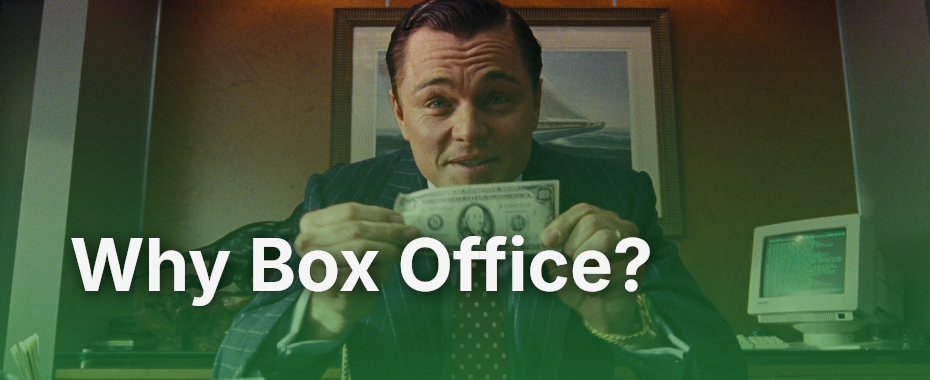Sometimes we are asked why the game focuses so much on movie financials, and not movie quality. After all, we’re all film fans, not studio executives. We care about the story and the experience of watching a movie, not whether it made back its budget. So why all the focus on profits and losses? Are we heartless robots?
Following the box office is very relevant for every film fan, and we believe it makes for the most meaningful gameplay experience. We’ve tried the alternatives - for example, some people have suggested integrating Rotten Tomatoes or Metacritic scores into the game to represent qualitative aspects of movies. At first glance, it might seem like that would measure “quality” better. But there are a few reasons we focus entirely on box office, and that we feel it's the most valid way to gamify an art form.
⸻
1. Hollywood is in Trouble, and Box Office has Never Mattered More
If you're reading this, you don’t need me to tell you that the theatrical experience is in a troubled place.
As a crew member working in Hollywood, things are dicey right now. The film industry has never been slower. As I write this, film production in Los Angeles has hit just a new low, overall production spend is decreasing, and the biggest studios in the world are consolidating into fewer and fewer companies.
As a result, movies’ financial success has never been more important. Every movie release is a data point, every ticket a shot fired in the battle against the demise of an institution.
When something like Sinners does well, that’s not just a financial win. It means Ryan Coogler will probably get to make more original movies (once he's done with Black Panther 3), and other filmmakers in similar positions might get more leash to tell stories that are personal to them, instead of getting sucked into the IP machine making - gag - streaming television shows.
The flip side is that whenever a movie doesn't connect, that's one more reason studios might hesitate to make more movies like it. After Challengers and After the Hunt, will Luca Guadagnino get another chance at a big-budget adult-oriented drama? What does Mickey 17 or The Running Man mean for the next sci-fi adaptation? What studio would take a chance on a musical after A Big Bold Beautiful Journey and Kiss of the Spider Woman?
I don't care about movie executives losing money. I care about movie executives making more movies. I care about movie studios being able to take risks on exciting projects from new voices. I care about the environment my favorite things are made in. And a good film box office market is good for film fans.
⸻
2. Box Office is the Cleanest Gameplay Mechanic
Other games have tried combining Rotten Tomatoes scores or awards performance with box office data, using an algorithm to synthesize multiple metrics into a single score.
In our opinion, that doesn’t work. It’s difficult to blend multiple metrics in a way that feels meaningful, balanced, and an accurate reflection of a movie’s performance.
We’ve played some of these games - as we play them, we have to think more about the developer’s algorithms than the real-world movie landscape. As we strategize we’re looking for movies that are more likely to perform in the rules of the game, not the movies that will land the most with audiences (or critics).
Box office is the cleanest translation of real-world data into points. The game remains a reflection of reality, and there’s never a question of how something performed.
⸻
3. What You See is What You Get
On the surface, lionizing box office returns may be seen as cynical; in practice, utilizing review scores introduces its own kind of cynicism.
There’s no such thing as objectivity in art. While review scores can be helpful in determining whether to see a movie, it’s dangerous to mistake review scores for an objective assessment of quality, or success.
Review aggregator sites have been manipulated by studios and come with their own statistical issues. They serve a utility in pop culture, but they're still labelling art with a quantitative number.
At least with box office, there’s no misunderstanding. It’s a pure measure of how many people actually went out and paid to see a movie. It’s a reflection of how well a movie connected with audiences — a snapshot of its standing in the culture and the moment we’re living in.
In the end, review sites are a representation of what a small group of people think about a movie; box office is a measurement of whether people actually went to see it.
Closing
Box office might sound corporate, but it’s really a measure of connection. It shows how audiences respond in real time. It’s simple, transparent, and more important than ever.
